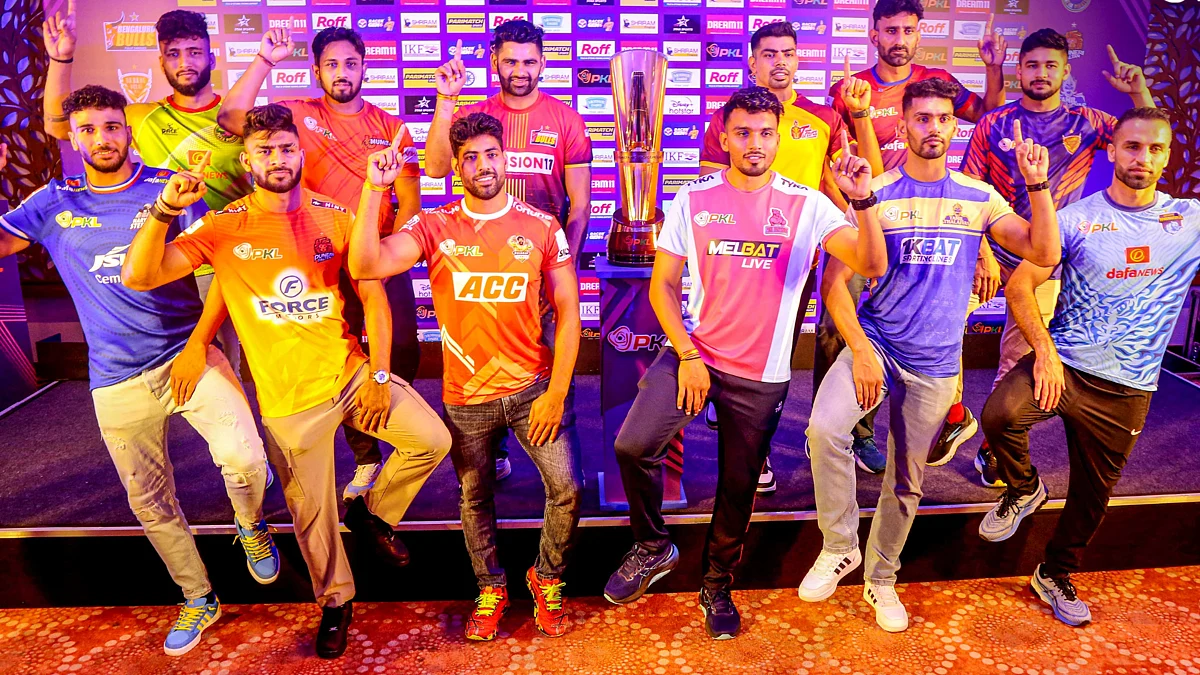That politics does not allow for permanent friends or rivals is a tired cliché heard ever so often but it brings out the full force of an electoral truth now and then as it did in Mumbai – and rest of Maharashtra – in this Lok Sabha election. Two days after the results in Mumbai stunned most people, Congress party’s Varsha Gaikwad, elected from Mumbai North-Central, wresting the complicated seat from the BJP, went over to Uddhav Thackeray’s house to offer her gratitude. Thackeray, of course, leads a faction of the Shiv Sena after 2022.
He promised all help and told me that he would get his younger sister elected; in the hand (Congress symbol) was the blazing torch (Sena symbol) with the tutari (NCP symbol) accompanying, Gaikwad gushed. The fulsome praise was not misplaced. In a difficult election characterised by slender resources and split parties, trudging through the constituency that houses some of the poorest people of Mumbai as well as some of the wealthiest in Bandra-Juhu, Gaikwad faced considerable difficulties in her campaigning.
A four-term MLA and former minister in Maharashtra government, and daughter of veteran Congressman and former MP Eknath Gaikwad, she is not new to the field but had many challenges. The reluctance of influential Congressmen including former ministers to fully participate in her campaign did not help. Of the six Assembly segments — Bandra west, Bandra East, Kurla, Chandivali, Vile Parle and Kalima — Congress held only one. This is Bandra East where the sitting MLA Zeeshan Siddique was rarely seen campaigning for her; his father, veteran Congressman Baba Siddique, had switched to the Eknath Shinde faction of the Shiv Sena. The wealthier segments of this Lok Sabha constituency did not take to her as one of their own.
Most of all, she was up against lawyer Ujjwal Nikam who, as special public prosecutor in the last two decades, became a household name when he led the legal fight against terrorists including the 26/11 aggressor Ajmal Kasab. Nikam was a surprise choice for the seat from the BJP because though his political preferences for the right-wing were not hidden, he was unfamiliar with the electoral terrain. Yet, he managed to bag more than 4.29 lakh votes to Gaikwad’s 4.45 lakh, forcing down her margin of victory to barely 2%. This is why Uddhav Thackeray’s personal support and campaigning for her mattered, as did the groundwork of the Sena’s cadre.
In this, lies the story of this election in Mumbai and large parts of the state too — the vote transfer from Thackeray’s Sena to the Congress and vice versa, the alignment between workers of the two parties, and the involvement of Uddhav Thackeray himself in seats where Maharashtra Vikas Aghadi candidates contested. Who would have imagined this even five years ago? The Congress and Shiv Sena coming together, holding each other through difficult times and Thackeray vigorously campaigning for the two Congress parties was possible only in an alternate universe. Similarly, Congress workers canvassing for Thackeray Sena candidates in Mumbai and larger Mumbai Metropolitan Region was a rare political sight.
This alignment, rather realignment, in 2019 has tested everyone’s understanding of political equations in the state, put immense strain on leaders who had to convince their cadres of it, and suddenly start using collegial or friendly language for each other after spending five decades and many elections with the choicest of abuses, the latter more from the Sena than the Congress parties. All is still not hunky dory down the ranks, and workers of the parties have not suddenly discovered pure affection for the other. However, the message that has spread well and wide is that this is the only route to political survival.
Thackeray, much maligned as a non-leader during his father’s life, emerged as a leader in his own right more than 10 years ago withstanding the onslaught from the Sena’s once most-trusted ally, the BJP, which even called off their alliance days before the 2014 election. Through it all, he managed to hold on to the party’s organisation, strengthen it in places, and keep the flock together in the face of severe pushback from within for transforming the character of the Sena from a belligerent and violence-loving Hindutva party to one less pugnacious, more grounded, with a wider political perspective than what his father held. This was his second avatar.
Crossing over to be the MVA’s chief minister in November 2019, Thackeray who had never held an official position earlier, came into his own. After the debacle in 2022, when Eknath Shinde led a rebellion out of the party to join the BJP, Thackeray faced the loss of the very name of his party and its bow-and-arrow symbol. His re-emergence as a quiet but determined campaigner for the MVA parties this election, firmly behind candidates not even of the Sena like Varsha Gaikwad, has earned him new respect across the board. His Sena managed to win nine seats — including three of Mumbai’s six — and the MVA together bagged an astounding 31 of the state’s 48, leaving the BJP, Shinde and Ajit Pawar befuddled. BJP’s Fadnavis, architect of Shinde’s rebellion, even offered to resign as deputy chief minister.
The realignment of Thackeray’s Sena with the Congress and NCP has had a positive impact — Thackeray received political education of the kind he had not got all his life, mentoring from Sharad Pawar which has stood him in good stead this election, and an acceptability that the old Shiv Sena did not have earlier among sections of voters devoted to the Congress parties. Call it Thackeray 3.0. Does this make Thackeray or his party secular, as the term has been historically understood in India; does it make him more acceptable to a larger coalition? And, importantly, will Thackeray switch back affiliation and loyalty to the Sena’s ally of 30-plus years as the buzz has been going around post-results?
The answer to the last question is up in the air at this time; whispers from the BJP suggest that he will return while his office is certain that the flip is unthinkable. While that sorts itself out, what should be clear to Thackeray himself, and his coterie of advisors, is that if he walks back into the BJP’s fold he will be forfeiting a large measure of the goodwill and acceptability that he has amassed in the last five years. Contesting as an ally, his party had picked up three seats in Mumbai in the 2019 general elections while the BJP took the other three. This time around, with a shrunken party apparatus and reduced resources, he managed three — Mumbai South, Mumbai South Central and Mumbai North East — and considerably contributed to Gaikwad’s win. His candidate in Mumbai North West, Amol Kirtikar, fell by a mere 48 votes in controversial recounts. Else, he would have limited the BJP to a mere one seat, that of Piyush Goyal in Mumbai North.
Thackeray’s hold over the city has been proven; his oratory may not match the best in the business but his backroom organisational skills have shown results. He has shown that he has the stomach for a spirited fight even against a former ally and can, if he stays within the MVA, create his own legacy too. If good sense prevails and he stays on, it could mean a different kind of politics for Mumbai in the coming years. For now, he helped stall the election of Ujjwal Nikam; else Mumbai would have had the ignominy of one who lied about "feeding biryani to Kasab" represent the city in Parliament.
Smruti Koppikar, senior journalist and urban chronicler, writes extensively on cities, development, gender, and the media. She is the Founder Editor of the award-winning online journal ‘Question of Cities’










